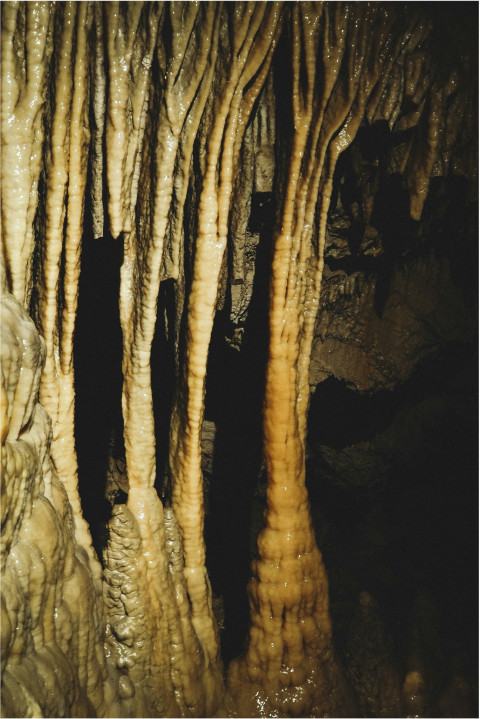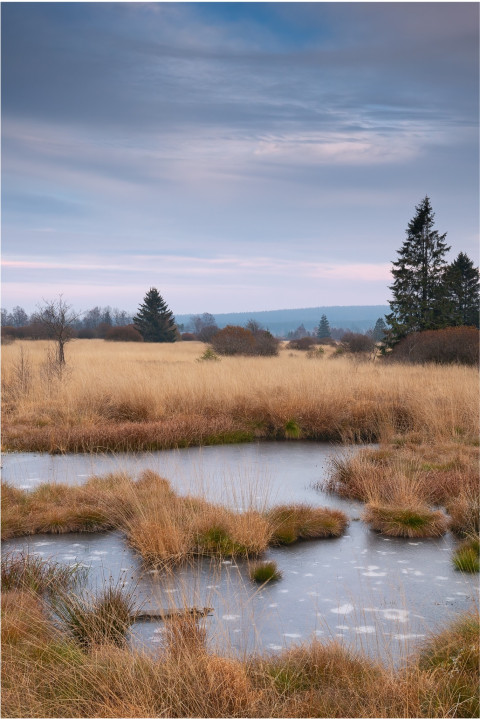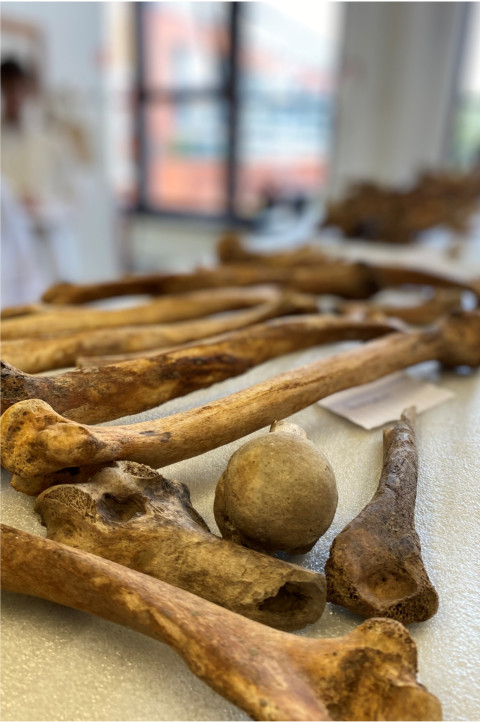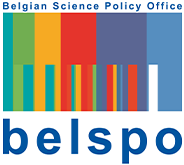
LEAP - Learning from the past:
The impact of abrupt climate changes on society and environment in Belgium
Current climate change has an important impact on human populations and the environment worldwide. The effects are also visible in Belgium, such as the recurring heat waves in 2022 or the devastating floods in Wallonia during the summer of 2021. However, this is not the first time we have faced abrupt climate changes. Our ancestors also experienced rapid climate changes with a temperature decrease of 1-2°C. However, due to the short duration of these events (lasting only 100 to 200 years) and the absence of written sources, it is challenging to assess their impact on society and the environment.
The LEAP project studies the impact of the 9300, 4200 and 3200 cal BP rapid climate changes on past societies and ecosystems in Belgium. This is done using a transdisciplinary approach combining palaeoclimatic, palaeoenvironmental and palaeomobility data and high-precision dating. By improving our understanding of the climatic effects on the environment and populations in pre-complex and early-complex societies during the Early and Middle-Late Holocene in the Meuse basin of Belgium, we can better address the challenges we face today in this region. This includes extreme weather events like droughts, floods and forest fires, as well as population movements and adaptations.
To achieve these objectives, (1) Belgian cave deposits (speleothems), (2) peat bogs, and (3) human remains in and around the Belgian Meuse basin are studied.



- Cave deposits for palaeoclimatic data
We study cave deposits (speleothems) to reconstruct temperature shifts, rainfall, and sedimentation during these abrupt climate changes in Belgium. For this, we perform sedimentological observations, oxygen and carbon stable isotope measurements and trace element analysis, and combine this with U/Th dating. To better visualise the current climate change compared to the past investigated ones in terms of rapidity and intensity of change, we put the past speleothem records in perspective to recent ones of the last 100 years. Some of the investigated speleothems are available from the RBINS speleothem collection. New speleothems are added that will further develop our collections after this project. - Peat bogs for palaeoenvironmental data
We investigate peat bogs from the Hautes Fagnes (Eastern Belgium) to determine past vegetation dynamics and wildfires, and to provide information on the resilience of our ecosystem to rapid climate changes. We reconstruct vegetation dynamics based on the analysis of subfossil pollen and spores from peat bogs. The analysis of microscopic charcoal fragments from the same peat deposits provides information on the occurrence of wildfires. Possible correlation between vegetation dynamics and climate changes is based on high-resolution radiocarbon dating. - Human remains for palaeomobility and palaeodemographic data
We date and analyse human remains from the Belgian Meuse basin to understand how these past rapid climate changes affected the mobility dynamics and the population density of local communities. We accomplish this by statistical modelling of available and new radiocarbon dates (SCPD, Kernel density analysis) and of raw counts of archaeological sites (settlements and burial contexts) in the Belgian Meuse basin to evaluate past population fluctuations. We also perform isotopic analyses (O, S, and Sr isotopes) on human remains, dated before, during, and after the abrupt climate changes, to trace possible episodes of human mobility or variations in landscape use promoted by climatic deterioration or improvement.
Integrating all this data will offer valuable insights into how climate change affected us in the past and allow us to put today’s climate change in historic perspective (speed, magnitude etc.). We will further provide climatologists and policymakers with high-resolution data and knowledge on past climatic changes, along with their environmental and societal impacts. This contributes to the development of accurate regional climate scenarios for the future in Belgium, enhances awareness, and supports informed decision-making for addressing extreme and worsening weather events such as droughts, floods, and forest fires.
Copyright | LEAP




